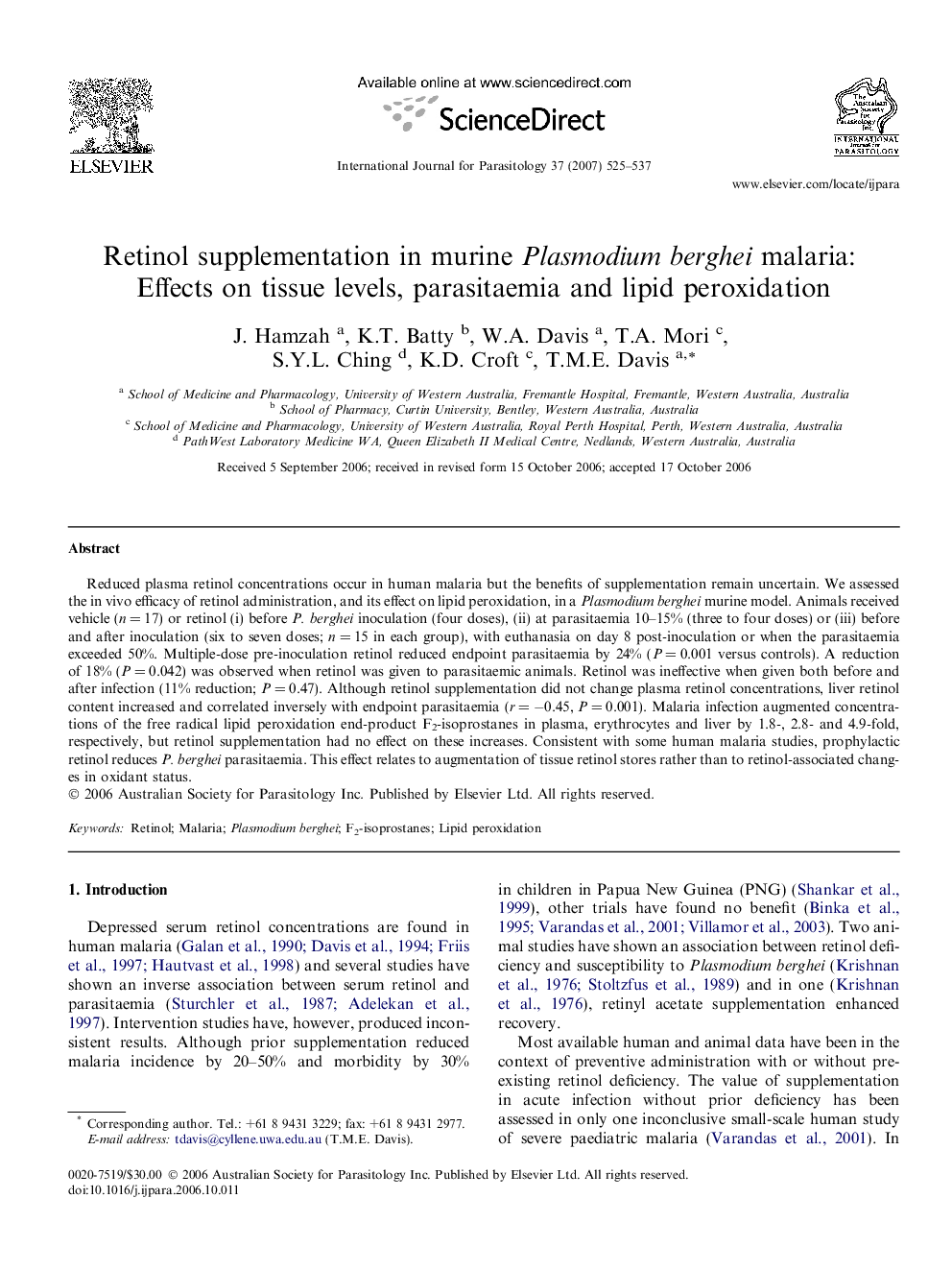| Article ID | Journal | Published Year | Pages | File Type |
|---|---|---|---|---|
| 2436984 | International Journal for Parasitology | 2007 | 13 Pages |
Reduced plasma retinol concentrations occur in human malaria but the benefits of supplementation remain uncertain. We assessed the in vivo efficacy of retinol administration, and its effect on lipid peroxidation, in a Plasmodium berghei murine model. Animals received vehicle (n = 17) or retinol (i) before P. berghei inoculation (four doses), (ii) at parasitaemia 10–15% (three to four doses) or (iii) before and after inoculation (six to seven doses; n = 15 in each group), with euthanasia on day 8 post-inoculation or when the parasitaemia exceeded 50%. Multiple-dose pre-inoculation retinol reduced endpoint parasitaemia by 24% (P = 0.001 versus controls). A reduction of 18% (P = 0.042) was observed when retinol was given to parasitaemic animals. Retinol was ineffective when given both before and after infection (11% reduction; P = 0.47). Although retinol supplementation did not change plasma retinol concentrations, liver retinol content increased and correlated inversely with endpoint parasitaemia (r = −0.45, P = 0.001). Malaria infection augmented concentrations of the free radical lipid peroxidation end-product F2-isoprostanes in plasma, erythrocytes and liver by 1.8-, 2.8- and 4.9-fold, respectively, but retinol supplementation had no effect on these increases. Consistent with some human malaria studies, prophylactic retinol reduces P. berghei parasitaemia. This effect relates to augmentation of tissue retinol stores rather than to retinol-associated changes in oxidant status.
